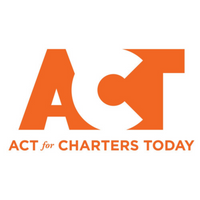 |

Legislative Update: Keep Up the Pressure on Harmful HB1363
Dear Legislative Update followers,
Welcome to Week Eight of our Legislative Update Newsletter, delivering the most recent developments from the fast-changing legislative scene at the Colorado State Capitol.
Help Us Stop House Bill 1363

HB24-1363 Charter Schools Accountability, sponsored by Representative Lorena Garcia, Representative Tammy Story, and Senator Lisa Cutter, was introduced in the legislature late last week. This proposed legislation poses a significant threat to public charter schools' core functions and principles. At 55 pages, the bill is extensive and contains a number of damaging provisions, but some of its more egregious include:
- Enabling districts to adopt a moratorium on the further expansion of charter schools under certain circumstances
- Allowing local districts to revoke or close charter schools simply on the basis of declining enrollment in the district
- Empowering individual community members to appeal local school board decisions on charter applications to the State Board, thereby authorizing anyone with an ideological bent against charter schools to challenge local school board decisions about them
- Removing the State Board’s final say on second appeals, basically eliminating the core checks-and-balances function against local board decisions that the State Board has fulfilled for the last 30 years
- Entirely eliminating the use of automatic waivers and the ability to access information about vacant or underused school district buildings and land
The bill's provisions undermine well-established and effective systems within charter schools, which have been instrumental in providing innovative and tailored educational options for students. In so doing, HB24-1363 not only jeopardizes the autonomy that has allowed charter schools to thrive but also significantly threatens their ability to continue addressing the needs of our state’s diverse learners.
While we await the bill being scheduled for its first committee hearing (House Education), we need your voice and attention to stop this harmful proposal and to protect Colorado public charter schools’ autonomy, diversity, and innovation.
| Take Action Now |
Flash Poll: Migrant Students and Your School
With the recent influx of migrant students into Colorado, the legislature is considering proposals to help schools serving large numbers of these students. To advocate most effectively for our schools in these circumstances, we need accurate information on the extent of the situation and how schools are responding. Please complete this short survey to help us assess how many migrant students your school has started serving since the October 1st count day.
Eliminating the Budget Stabilization Factor
Education funding took center stage the week before last as Governor Polis, joined by legislators and educators, celebrated the pending elimination of the so-called budget stabilization factor. Then, last Monday, the Joint Budget Committee (JBC) finally officially voted to eliminate the stabilization factor from next year’s budget.
As a result of this action, schools are expected to receive an increase of approximately $700 per student next school year, which translates into the roughly 6.6% year-over-year increase we’ve reported on previously. None of this will be 100% finalized until the full legislature passes the budget and School Finance Act in the remaining eight weeks of the session, but continued signs of optimism prevail.
The Budget Process: Figure Setting
The JBC makes funding decisions for the upcoming fiscal year in February and March. JBC analysts present each department's budget request and make recommendations for the Committee's consideration in a “figure-setting” document. The Committee votes on each staff recommendation, and JBC analysts recalculate appropriations based on Committee actions. Figure setting for education took place last week, and a couple of the actions with particular relevance for charter schools included:
CSI Mill Levy Equalization
The JBC voted to approve a General Fund increase of $15,123,426 for mill levy equalization dedicated to CSI charter schools. This adjustment raises the total General Fund support for equalization to $42,123,426, substantially increasing from the existing $27 million General Fund allocation. This move represents the legislature's commitment from the previous year to fund CSI schools completely, marking a significant and positive step forward for our schools!

Charter School Capital Construction Program
Due to League efforts last year, an additional $10 million was invested into the Charter School Capital Construction Fund for the current school year, raising it to its highest level ever at nearly $400 per student. This investment enabled us to offset a decline in marijuana excise tax revenue, which makes up a significant portion of the overall amount of money that goes into the fund. But it was a one-time investment, and unless we can convince legislators to do something similar this year, we’ll see a decrease in the Charter School Capital Construction Fund due to declining marijuana excise tax revenue. We’re working hard to prevent that, mainly since an additional infusion of funds from the state this year could position us to unlock substantial matching dollars from the federal government. Stay tuned for more to come on this.
The League’s Policy Agenda
Protecting Autonomy & Flexibility
One of our proactive pieces of legislation this year (SB24-132) is a bill that seeks to extend privacy protections for educator evaluations, currently reserved for licensed teachers and administrators, to encompass all staff and educators. It garnered unanimous approval during its inaugural committee hearing the week before last. By achieving unanimous approval in its first committee hearing, the bill reflects a commitment to fostering an equitable and supportive environment for charter school personnel. It then moved quickly through the full Senate and has been introduced in the House.
Also, in the realm of autonomy and flexibility, the League continues its fight to protect our schools from the unnecessary PERA encroachment into subs hired by third-party contractors.
Access and Affordability for Facilities
Another piece of our proactive agenda is a bill (HB24-1154) designed to eliminate any legal obstacles hindering school districts from sharing bond resources with CSI schools within their geographic boundaries. It successfully advanced with an 8-3 vote in its favor through its initial committee meeting (House Education) and now awaits action on the full House floor. Stay tuned for updates as the bill continues its journey through the legislative process.
Ensuring Authorizing Consistency
While Colorado charter schools must adhere to rigorous accountability standards, the same cannot always be said for their overseeing authorizers. This gives rise to a varied landscape of authorizing practices across the state, leading to disparate experiences for charter schools based on their respective districts. This lack of uniformity creates an uneven and often challenging environment, a significant obstacle for high-quality schools contemplating expansion, replication, or new openings.
The League remains committed to advocating for policies aimed at addressing this inconsistency. The goal is to establish more uniform standards and practices regardless of authorizer. Connected to these efforts, a recent bipartisan bill (SB24-088) has been introduced, focusing on reporting additional information about authorizing practices in the annual charter school report. It has its first committee hearing (Senate Education) this Wednesday, and we hope it can draw attention to the importance of authorizing and its critical role in maintaining a solid statewide charter school sector.
Growing Number of Bills Introduced
While the Legislative Session has just passed the midway point, a steady stream of new bills is still being regularly introduced. We continuously update our Bill Tracker with newly introduced bills to keep you well-informed. Additionally, committee chairs are actively arranging the scheduling of bills, so please check the tracker frequently for timely updates and to stay actively engaged in legislative developments that shape our agenda.
| League’s Legislative Bill Tracker |
Other Legislation of Note
Beyond League-specific items, there are a number of other bills that we are tracking and have engaged on because of their implications for the charter sector and our students. Feel free to contact us should you have questions or thoughts related to any of the following:
- SB24-049 Content of Material in Libraries (League position: Oppose)
This bill would have created a process allowing students, parents, or community members to object to a library resource (library books) in school or public libraries. It would have also established standards under which determinations about removing a library resource would have to be made, and it would have prevented charter schools from ever pursuing a waiver from its provisions.
From the time it was drafted, we engaged actively with the bill's sponsors and supporters, articulating our concerns regarding the waiver provisions, the lack of adequate understanding and appropriate inclusion of charters, and the proposed standards and structure. The bill died in committee (Senate Education) on Wednesday, 2/28. - HB24-1282 Ninth-Grade Success Grant & Performance Reporting (League position: Support)
Under current law, the Ninth Grade Success Grant Program in CDE repeals on July 1, 2025. This bill continues the program (a number of charter schools have benefitted from it) and requires that the General Assembly appropriate $2.8 million per year for the program, beginning in FY 2024-25. - HB24-1039 Non-Legal Name Changes (League position: Amend)
This bill deems a school’s refusal to use a student’s preferred name (as opposed to a legally changed name) as a form of discrimination. While the bill does not specify remedies for potential discriminatory actions, legal costs for school districts and schools may increase if it results in lawsuits or other legal actions.
Consistent with existing regulations on this topic, we sought changes that would only make this qualify as discrimination if it were done in a “knowing or intentional” manner. We also successfully advocated for removing provisions related to charter school waivers. This bill has cleared the House and was recently introduced in the Senate. - SB24-158 Social Media Protect Juveniles Disclosures Reports (League position: Support)
This bill sets forth stipulations for social media companies with users in the state. These include mandates for public disclosure of specific company policies, implementing juvenile protection practices, enforcing policy violations, and submitting an annual report to the Attorney General. - HB24-1310 School Safety Measures (League position: Amend)
This bill permits a school district, charter school, or board of cooperative services (local education provider) to employ or retain by contract a person as a school security officer only if:- The local education provider has a policy that governs security officers' engagement with students;
- The person completes school security officer or school resource officer training; and
- The person undergoes a background check and a psychological evaluation.
One of our concerns with this bill, as introduced, is that, under its current definitions, if you are doing any educational work that could be licensed, you can’t also be a school security officer. This is a problem for smaller schools, especially in rural communities, where they may feel they need a person who can act, in effect, as a part-time school security officer. The statute bars this and does not do so in a way that clarifies why this limitation exists. We are seeking amendments to address this.
- HB24-1305 Changes for Concurrent Enrollment Students
The Pathways in Technology Early College High School (P-TECH) Program allows students in approved programs to graduate from high school with an associate’s degree or certificate in specific disciplines. This bill expands the allowable disciplines to include industries beyond science, technology, engineering, and mathematics. Under current law, credits earned through a P-TECH program, concurrent enrollment courses, developmental education courses, the Accelerating Students in Concurrent Enrollment (ASCENT) program, and the Teacher Recruitment and Education Program (TREP) program count against a student’s allowable College Opportunity Fund (COF) limit. The bill changes this law so that P-TECH, concurrent enrollment, development ASCENT, and TREP credits do not count against this credit limit. - HB24-1264 Supporting the Educator Workforce
This bill requires CDE to create, maintain, and manage an online career support and pathways portal for educators; staff; school districts, district charter schools, CSI, boards of cooperative services, or approved facility schools; and educator preparation programs.
Advocacy Resources
State and Federal Policy Updates (Members Only)
Exclusively for members, we offer weekly State and Federal Policy Update calls every Friday from 12:00-12:30 PM during the legislative session. If you desire real-time updates and discussions, these calls are an excellent opportunity to stay informed and engaged! Updates started on January 12th and will run through the end of the session in early May. Register now.
Bill Tracker (Members Only)
During the Colorado legislative session, we keep an updated summary of bills currently in the legislature that affect charter schools. In addition to a bill number, title, and description, we include each bill’s last dated action and a link to its fiscal note. Color codes offer easy identification of those bills that have been sent to the governor, signed into law, or postponed indefinitely. Log in to view the latest bill tracker.

ACT Network: Act for Charters Today
The League's Act for Charters Today (ACT) Advocacy Network is the group and process through which we activate and engage our public charter school families, parents, students, and staff for the common good. This action-oriented network strives to build knowledge, skills, and power to strengthen and support charter schools throughout the state.
Our advocacy efforts are focused on state policies and district initiatives that ensure all Colorado children deserve access to high-quality public school options, including charter schools. Build your charter school knowledge and advocacy skills while taking part in a powerful and influential community statewide that intercedes on behalf of our schools and, more importantly, our students. We’ll give you everything you need to make taking action for charters quick and easy!
| Sign Up for ACT Today! |
Stay informed, stay engaged, and let's work together to ensure a thriving future for charter schools in Colorado!

Angelina Sierra-Sandoval, MPA
Director of Government Affairs, Colorado League of Charter Schools
[email protected]

|
||||||||
|
||||||||
|
||||||||
|
| © 2024 Colorado League of Charter Schools |



